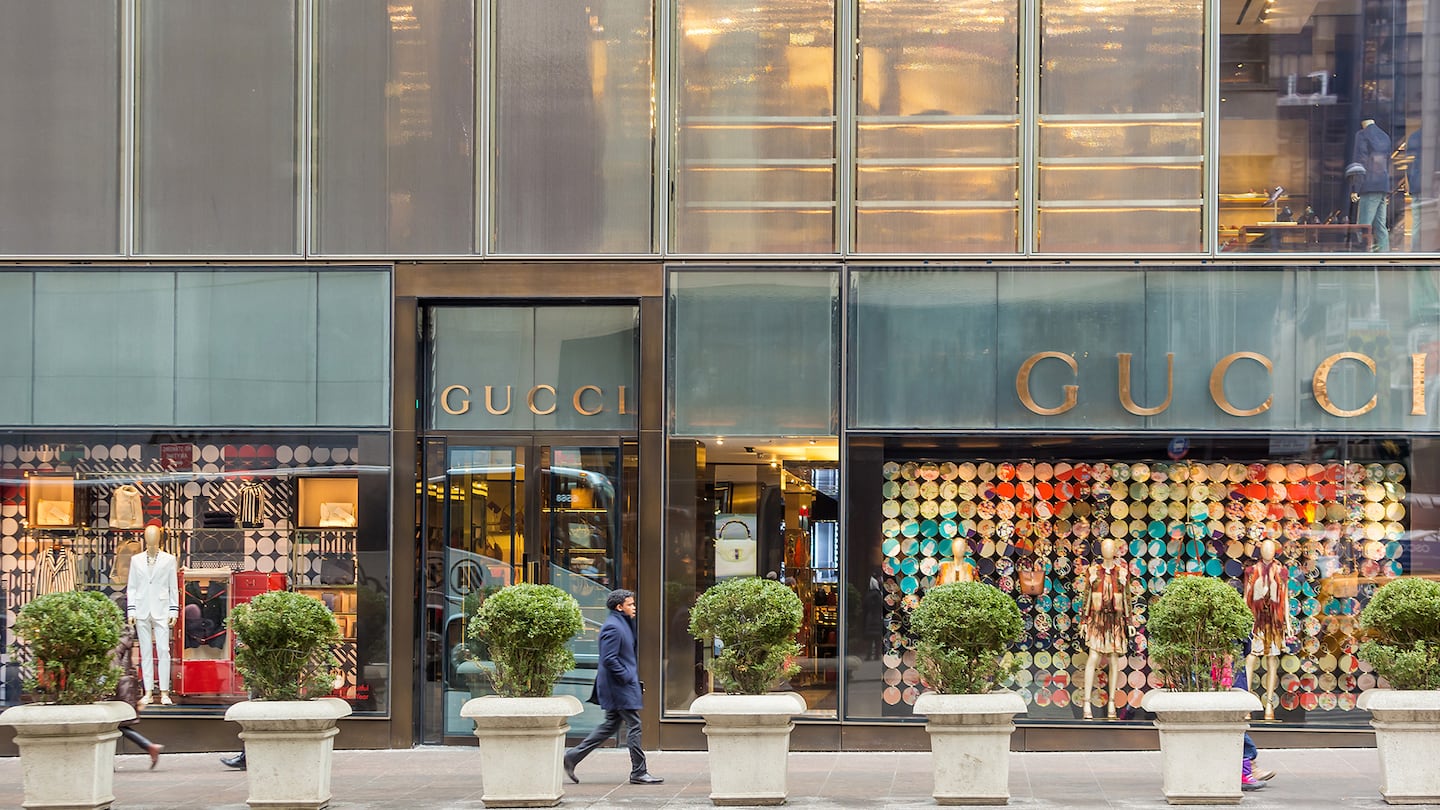
The Business of Fashion
Agenda-setting intelligence, analysis and advice for the global fashion community.

Agenda-setting intelligence, analysis and advice for the global fashion community.

Gucci said Tuesday it has pulled products containing rabbit felt, following criticism that the material jarred with its fur-free commitment.
The move comes after industry-watchers including filmmaker and animal rights advocate Rebecca Cappelli and Jadedigital columnist Marcus Pentzek voiced criticism of the brand for featuring a women’s hat made with “100% rabbit felt” in its Lunar New Year collection celebrating the Year of the Rabbit. Adverts promoting the collection featured models cradling bunnies in a colourful pastoral setting, which commentators called out as being in poor taste.
“Exploiting rabbits in ads while selling products that harm them is not the way to celebrate the year of the rabbit,” Cappelli wrote in a LinkedIn post.
Gucci said that rabbit felt, which is not technically fur because it is not used with the animal’s skin attached, is in keeping with its fur-free policy. The company said the rabbit felt it uses is a “a co-product derived from the food supply chain in European farms,” but it has chosen to discontinue the products anyway.
ADVERTISEMENT
Gucci was an early mover in the fresh wave of brands pledging to ditch fur in 2017, at a time when many luxury players were still holding out on such commitments, with chief executive Marco Bizzarri famously calling the material “a little bit outdated.” Other Kering brands followed suit in subsequent years, and in 2021 the luxury group announced it was going entirely fur-free. In keeping with this policy, Gucci does not use angora or rabbit fur in any of its products.
Kering defines fur as “animal pelts where the hair is left on the animal’s processed skins, from animals being raised, trapped or hunted for their pelt,” according to the group’s Animal Welfare Standards.
Nonetheless, its decision to remove rabbit felt products reflects the fact not all consumers might make this distinction.
As of last week, there were a number of men’s and women’s accessories made with “100% rabbit felt” for sale on Gucci’s website, including several fedoras and a leopard-print cloche hat.
“In order to avoid any possible misunderstanding for our clients, these products we have [sic] already been discontinued on our channels,” Gucci said.
Products containing the material also appear to have been pulled from third-party Gucci stockists, including Mytheresa, MatchesFashion and Net-a-Porter, with links to rabbit felt hats listed on Google redirecting to other pages. The retailers did not immediately respond to BoF’s request for comment.
For more BoF sustainability coverage, sign up now for our Weekly Sustainability Briefing by Sarah Kent.
Editor's Note: This article was revised on Jan. 24, 2023, to indicate that Gucci products made from rabbit felt appear to have been pulled from third-party stockists.
Moncler and Dolce & Gabbana are among the latest luxury brands to announce a fur ban. But for some big names, the material has enduring appeal.
Kering brands like Gucci and Bottega Veneta banned fur years ago, but the French luxury group is extending the policy across all its labels.
The fashion industry continues to advance voluntary and unlikely solutions to its plastic problem. Only higher prices will flip the script, writes Kenneth P. Pucker.
The outerwear company is set to start selling wetsuits made in part by harvesting materials from old ones.
Companies like Hermès, Kering and LVMH say they have spent millions to ensure they are sourcing crocodile and snakeskin leathers responsibly. But critics say incidents like the recent smuggling conviction of designer Nancy Gonzalez show loopholes persist despite tightening controls.
Europe’s Parliament has signed off rules that will make brands more accountable for what happens in their supply chains, ban products made with forced labour and set new environmental standards for the design and disposal of products.